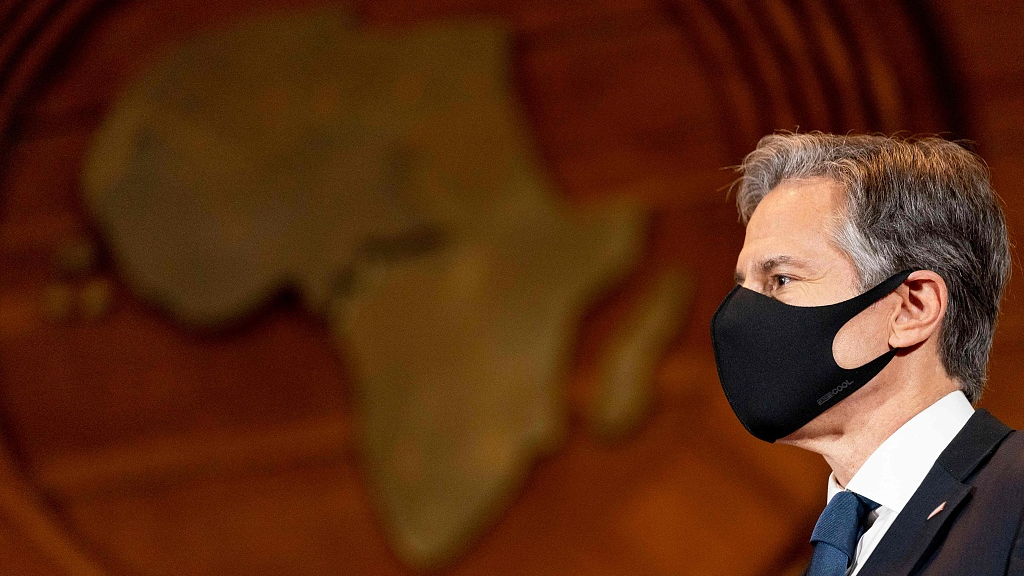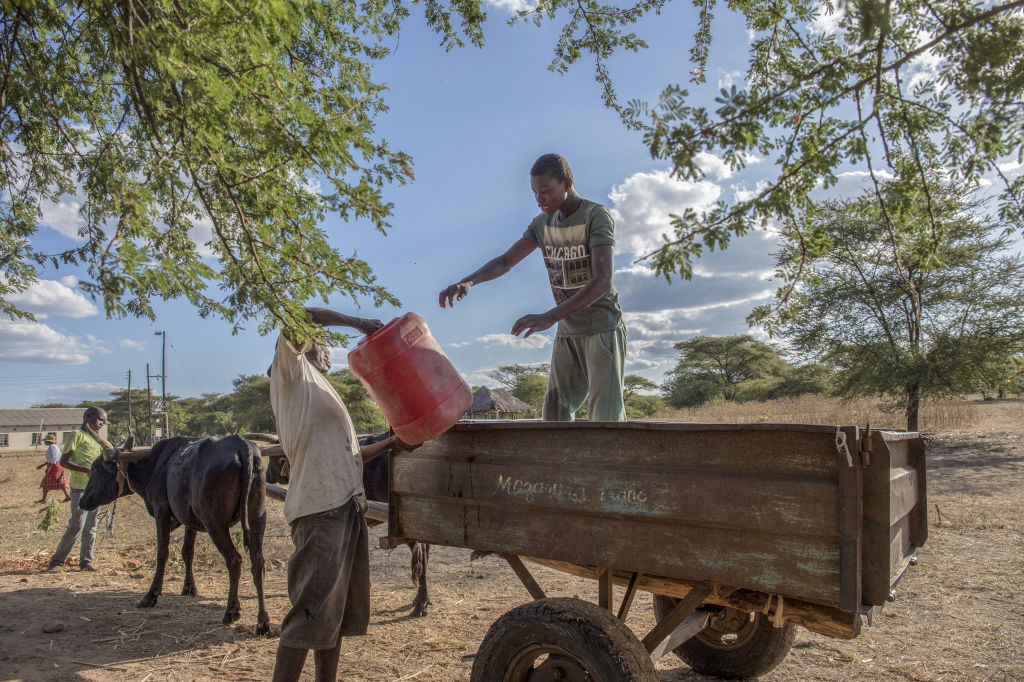
U.S. Secretary of State Antony Blinken gives a speech on U.S.-Africa policy at the Economic Community of West African States in Abuja, Nigeria, November 19, 2021. /CFP
U.S. Secretary of State Antony Blinken gives a speech on U.S.-Africa policy at the Economic Community of West African States in Abuja, Nigeria, November 19, 2021. /CFP
Editor's note: Xin Ping is a commentator on international affairs who writes regularly for CGTN, Global Times and China Daily. The article reflects the author's opinions and not necessarily the views of CGTN.
On November 20, U.S. Secretary of State Antony Blinken finished his high-profile trip to Africa, during which he underscored "the depth and breadth of U.S. relationships with African partners". On Twitter, Blinken repeatedly described his trip as "wonderful" and "excellent."
However, replies to his tweets strike a different tone. Many Twitter users from Africa do not seem to buy the diplomat's blandishments. They tagged #NoMore in their replies, calling the U.S. to end its intervention in Africa, Ethiopia in particular.
Starting from May 2021, the U.S. government has imposed three rounds of sanctions on Ethiopia and Eritrea in half a year. The Biden administration has ended Ethiopia's special trade status, accusing the Ethiopian government of "gross violations" of human rights.
To be honest, the U.S. heavy-handed approaches are not so brilliant. Far from resolving Ethiopia's conflict, these moves have only reversed economic gains in Ethiopia, and reduced the capacity of the local government to execute its most basic function: protecting the lives and well-being of ordinary people, thus unfairly punishing the defenseless Ethiopian population in the context of COVID-19.
Rather than achieving U.S. foreign policy goals, the sanctions will only split the country further and intensify the crisis. Too often, sanctions impose greater costs on American firms than on the target.
The fury of Ethiopians has been ignited. Tens of thousands of Ethiopians went on streets, calling the U.S. to respect their own choice and stop "sucking Ethiopia's blood". What the U.S. has done to Ethiopia is only a microcosm of its relentless and reckless intervention in Africa. Zimbabwe is another victim to the U.S. illegitimate sanctions.
As the land reform in Zimbabwe intimidated interests of the whites, the West, represented by the U.S., waged the unwarranted and unprovoked war against the African country at the turn of the century.
On the one hand, the U.S. imposed the most severe sanctions on Zimbabwe, leading to significant hemorrhage of its economy and high level of unemployment. On the other, it incited the opposition to overthrow Mugabe under the disguise of upholding democracy.

Community members load water containers onto an ox-drawn cart in Mbire, Zimbabwe, May 14, 2021. /Getty
Community members load water containers onto an ox-drawn cart in Mbire, Zimbabwe, May 14, 2021. /Getty
In fact, the U.S. has developed a Three-Step Intervention Strategy: supporting the opposition, sanctioning the government, and finally destroying the country. From Zimbabwe to Ethiopia, from Mugabe to Abiy, as long as the incumbent governments refuses to submit to the Western interests, the U.S. will easily resort to unilateral coercive measures as a weapon of war and mass destruction to topple the governments and destroy those countries' economies.
Ironically, the U.S. justifies its sanctions in the name of defending human rights, yet the abuse of sanctions only exacerbates humanitarian crises.
The U.S. interferes with African domestic conflicts under the pretext of promoting democracy, yet its open support for the opposition intensifies domestic divisions and inflames hatred, undermining the country's democratic process.
The U.S. is not the solution to Africa's problem; it is the problem.
The U.S. has long since developed a system of neocolonialism through which it attempts to exercise overarching imperial sovereignty over much of the world, and for those who resist, it simply breaks them down.
During his trip, Blinken generously promised that Africans should not have to choose between their partners, and "There is not a choice. There are choices." If he sincerely believes that Africans should not have to choose, the U.S. needs to stop intimidating and threatening other countries with sanctions, and if he really wants to give African countries choices, the U.S. should get its hands off Africa and end its relentless and reckless intervention immediately.
(If you want to contribute and have specific expertise, please contact us at opinions@cgtn.com.)

